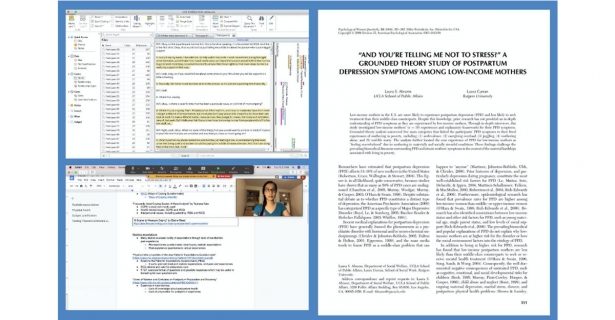As new mothers’ transition to a new normal, they are faced with a multitude of challenges, including infant care, changing family dynamics, and financial strains, leaving them vulnerable to postpartum depression. This summer, I have the opportunity to more closely examine the different factors that influence this transition that affect women globally.
To guide my internship experience, I have been working with Laura Curren, a psychology graduate student at Boston University’s Family Development and Treatment Lab. Her research on maternal adjustment focuses on minority and low-income mothers along with the importance of maternal social support, and is part of the THRIVE (Transgenerational Health Research Initiative) study at BU, which researches how genes and environment interact and affect health between different generations.
Working remotely, I spend much of my time combing through online databases, reading papers in search of helpful information. Google Scholar has become one of my best friends. The regular Zoom meetings with Laura are highlights of my week, as I get to hear more about
the projects she is working on, talk about the work I have completed, and discuss the upcoming tasks that I am assigned. As someone who is interested in research, one of the best parts of my experience is being able to see the various stages of different projects. In addition to finding and reading papers, I am currently working with data from interviews conducted prior to the coronavirus pandemic, giving me the opportunity to take part in the data analysis stage of research. I have also gotten the chance to edit an about-to-be-published research paper using peer review comments, which was an excellent opportunity to learn more about the publication process.
However, the start of this internship was not without a couple challenges. Like with every new job, there was a short period of adjustment. Mine was filled with having to learn quickly about the topic of maternal adjustment and figuring out the most important keywords for database searches that would yield the most relevant articles. I also had to learn more about writing grants and familiarize myself with new data software I will be able to put all of these skills to use in the future.
As I continue this internship, I look forward to learning more about women’s mental health during the maternal adjustment period. With a majority of existing studies focusing primarily on white, middle-aged women, I am excited to contribute to research that will expand the current understanding of how factors such as social support impact more diverse groups of new mothers, focusing on those of minority low-income. With such research, intervention programs can be developed to better support these mothers to decrease maternal depression and improve outcomes for mother, child, and the rest of the family.
Alumna Biz Herman and colleague Laura Curren provided this remote internship.

